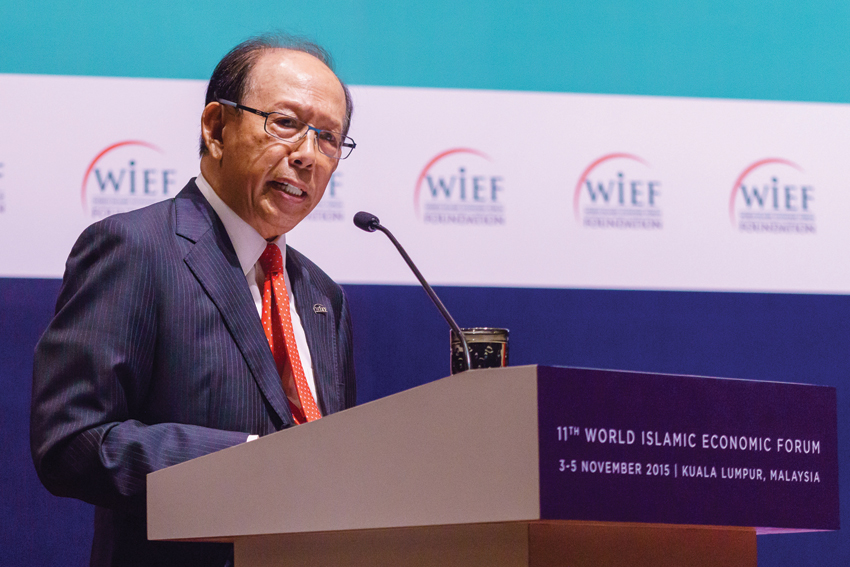Launch of the ‘SME Business Pavilion’ at the World Islamic Economic Forum (WIEF) underlines importance for small and medium enterprises to build resilience, especially with the realisation of the Association of South East Asian Nations (ASEAN) Economic Community in 2016.

With small and medium enterprises (SMEs) a key contributor to ASEAN economies – accounting for more than 95 %of total business establishments across the region, generating about 50 to 85% of total domestic employment, and contributing 20 to 50% of GDP – the establishment of the World Islamic Economic Forum (WIEF) ‘SME Business Pavilion’ last year was a significant development.
Created to provide a platform for business owners and entrepreneurs to exchange insights on international growth and encourage activities that foster cross-border collaboration to increase competitiveness in the international marketplace, the ‘SME Business Pavilion’ was officially inaugurated at the 11th annual WIEF in Kuala Lumpur on 4 November 2015.
Commenting on the development, Chairman of the WIEF Foundation, Tun Musa Hitam, said, “We strongly believe that giving priority to the development of SMEs is the right thing to do in line with the strong commitment demonstrated by governments towards building a strong base of vibrant and competitive SMEs in the region.” The WIEF chairman highlighted the particular importance of this to ASEAN countries considering the economic integration opportunities presented by the ASEAN Economic Community (AEC), which came into effect on 31 December 2015.
However, it is not just Southeast Asian nations participating in the ‘SME Business Pavilion’. A total of 14 countries from across ASEAN, Africa, Central Asia, Europe and North America are also involved, with the United Kingdom (UK) leading a contingent of 11 companies.
Alongside ASEAN, Africa is the other major region that promises exciting economic growth thanks largely to the contribution of its SMEs to GDP, employment and exports. As countries in both regions transition from an industry-based to a commodity-based economy, their respective governments are making greater efforts to build resilience among domestic SMEs to ensure that they are able to participate in the next level of sustainable economic growth.
Cambodia, for instance, is a good example of a Southeast Asian nation preparing its SMEs to compete regionally by encouraging them to enter the formal sector as well as by creating more special economic zones to attract foreign direct investment and strengthening the national education system.
Good examples across Africa include Rwanda, which is building an institutional ecosystem to grow SMEs via interventions that promote access to markets and finance, prioritise technical vocational education and training (TVET) and increase digital connectivity. Mozambique plans to ensure sustainable economic growth by increasing the number of new SMEs in the formal economy as well as by improving the competitiveness of existing SMEs. Gabon, meanwhile, is supporting SME growth by simplifying company registration processes, providing the right kind of training, as well as through the establishment of special economic zones.
Aside from the ‘SME Business Pavilion’, the 11th WIEF also saw the implementation of a comprehensive Global SME Business Match-Making network to address the barriers and sustainability challenges faced by the SME community.
The WIEF Foundation – the not-for-profit organisation which arranges the World Islamic Economic Forum to showcase business opportunities in the Muslim world – will host its 12th annual forum in Jakarta, Indonesia, later this year. The 12th WIEF, themed “Decentralising Growth, Empowering Future Business”, will again focus on the issue of SMEs, and other topics including sukuk for infrastructure investments, zakat and waqf management, and Islamic tourism.
0 COMMENTS